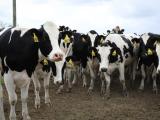Jan 12, 2012
Hong Kong lowers its avian flu alert level
Hong Kong has moved its avian flu warning level back to "alert" after it raised it to "serious" on Dec 20 upon detection of H5N1 in a chicken at a live bird market and in two wild birds, a Channel News Asia (CNA) story said yesterday. That clears the way for importing and selling live poultry from mainland China and local farms. In addition, Hong Kong Health Secretary York Chow said the virus in the bird samples has not mutated compared with other samples collected in the region. "There is no significant change in terms of genetic shifting," he said.
Hong Kong's pandemic influenza response levels
Rand report says office-based practices key to adult vaccination
Practitioners must promote adult vaccination as part of routine office-based healthcare, according to a Rand Corp. report released yesterday. Rand researchers conducted a comprehensive review of the literature on adult immunization, held a stakeholder workshop, interviewed workshop attendees and other experts, and conducted a phone survey of 1,278 adults (the latter specifically on the flu vaccine). Report authors said, "Reflecting available research, the vast majority of the empirical evidence presented in this report is based on studies of the demand for and delivery of influenza vaccination." The report said that while most adults receive vaccines in medical offices, only about a fourth of the offices stock all recommended adult vaccines. Obstacles include the short shelf life of some vaccines and inadequate insurance coverage. Even so, the report emphasizes the importance of office-based providers. "Office-based providers are uniquely positioned to identify patients who need vaccination, to communicate credibly about the benefits and risks of vaccination, and to ensure that vaccination histories are properly maintained," said lead author Katherine Harris in a Rand news release. The report says better guidance, including structured vaccination counseling protocols, should be developed to help healthcare providers promote and administer vaccines and evaluate the optimal site for administering them. The study was supported by an unrestricted grant from GlaxoSmithKlein.
Jan 11 Rand Corp. press release
Rand report
Study: H3N2 dominance may lead to more pneumococcal pneumonia
In assessing data from 11 flu seasons, researchers found that the association between invasive pneumococcal pneumonia and influenza and respiratory syncytial virus (RSV) activity varied but was stronger in seasons when the H3N2 flu strain dominated. US scientists analyzed data from the 1994-95 through 2004-05 seasons, adjusting for seasonal temperature, precipitation, and sunshine, which are believed to be associated with pneumococcal pneumonia, flu, and RSV. They found "significant" associations in 5 of the 11 seasons, in all of which H3N2 predominated. (The strain dominated in three other seasons as well.) In contrast, they found no association in seasons when non-H3N2 strains were dominant, though the difference was not significant. They write that their finding is consistent with the idea that H3N2 may lead to more pneumococcal superinfections compared with H1N1.
Jan 11 Emerg Infect Dis study




















